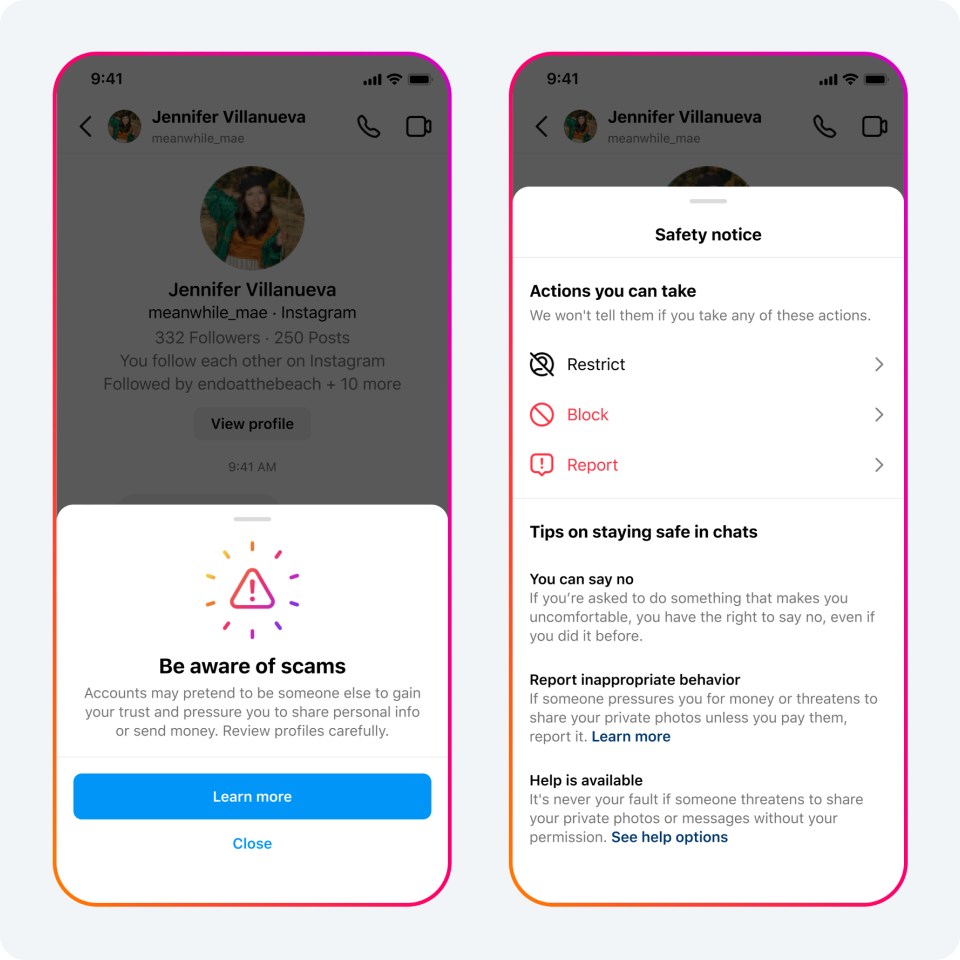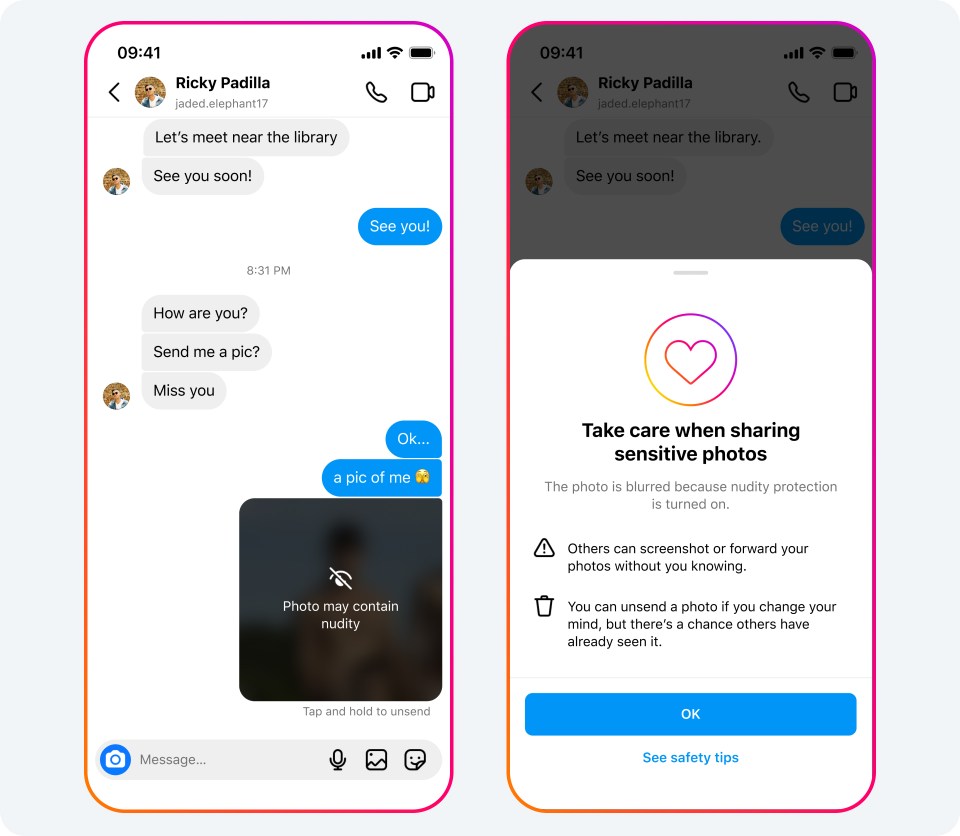
Financial sextortion is a horrific crime that can have devastating consequences. Our teams have deep experience in fighting this crime and work closely with experts to recognize the tactics scammers use, understand how they evolve and develop effective ways to help stop them. Like many crimes, financial sextortion crosses borders, and over recent years there’s been a growing trend of scammers — largely driven by cybercriminals known as Yahoo Boys — targeting people across the internet, both with these and other types of scams. We’ve banned Yahoo Boys under Meta’s Dangerous Organizations and Individuals policy — one of our strictest policies — which means we remove Yahoo Boys’ accounts engaged in this criminal activity whenever we become aware of them.
Following our recent Q1 2024 Adversarial Threat Report, today we are announcing the strategic network disruption of two sets of accounts in Nigeria that were affiliated with Yahoo Boys and were attempting to engage in financial sextortion scams.
First, we removed around 63,000 accounts in Nigeria that attempted to directly engage in financial sextortion scams. These included a smaller coordinated network of around 2,500 accounts that we were able to link to a group of around 20 individuals. They targeted primarily adult men in the US and used fake accounts to mask their identities.
We found the coordinated network of around 2,500 accounts through a combination of new technical signals we’ve developed to help identify sextorters and in-depth investigations by our expert teams. The majority of these accounts had already been detected and disabled by our enforcement systems, and this investigation allowed us to remove the remaining accounts and understand more about the techniques being used to improve our automated detection.
While our investigation showed that the majority of these scammers’ attempts were unsuccessful and mostly targeted adults, we did see some also attempt to target minors, and we’ve reported those accounts to the National Center for Missing and Exploited Children (NCMEC). Since these criminals don’t limit themselves to any one platform, we also share relevant information with other tech companies through the Tech Coalition’s Lantern program, so they can take action too.
Applying lessons learned from taking down terrorist groups and coordinated inauthentic behavior, we used our identification of this coordinated network to help us identify more accounts in Nigeria that were attempting to engage in similar sextortion scams, bringing the total to around 63,000 accounts removed.
Second, we removed around 7,200 assets, including 1,300 Facebook accounts, 200 Facebook Pages and 5,700 Facebook Groups, also based in Nigeria, that were providing tips for conducting scams. Their efforts included offering to sell scripts and guides to use when scamming people, and sharing links to collections of photos to use when populating fake accounts.
Since this disruption, our systems have been identifying and automatically blocking attempts from these groups to come back, and we continue to strengthen those systems to make them as effective as possible. We’ve also used the new tactics we observed to further improve our ability to detect accounts, Groups and Pages engaging in this activity.
While these investigations and disruptions are critical, they’re just one part of our approach. We continue to support law enforcement in investigating and prosecuting these crimes, including by responding to valid legal requests for information and by alerting them when we become aware of someone at risk of imminent harm, in accordance with our terms of service and applicable law. We also fund and support NCMEC and the International Justice Mission to run Project Boost, a program that trains law enforcement agencies around the world in processing and acting on NCMEC reports. We’ve conducted several training sessions so far, including in Nigeria and the Cote d’Ivoire, with our most recent session taking place just last month.
We also want to help people recognize and avoid these scams, while making it as difficult as possible for the criminals behind them to succeed. It’s why we default teens under 16 (under 18 in certain countries) into stricter message settings so they can’t be messaged by anyone — even other teens — they’re not connected to, and show Safety Notices encouraging them to be cautious.
We also recently announced that we’ve developed new signals to identify accounts that are potentially engaging in sextortion, and are taking steps to help prevent these accounts from finding and interacting with teens. Finally, we’ve started testing our on-device nudity protection feature in Instagram DMs, which will blur images detected as containing nudity, encourage people to be cautious when sending sensitive images and direct people to safety tips and resources, including NCMEC’s Take It Down platform.
This is an adversarial space where criminals evolve to evade our ever-improving defenses. We will continue to focus on understanding how they operate so we can stay one step ahead, and will continue our vital cooperation with child safety experts, law enforcement and the tech industry to help disrupt these criminals across all the platforms they use.
The post Combating Financial Sextortion Scams From Nigeria appeared first on Meta.

















 English (US) ·
English (US) ·